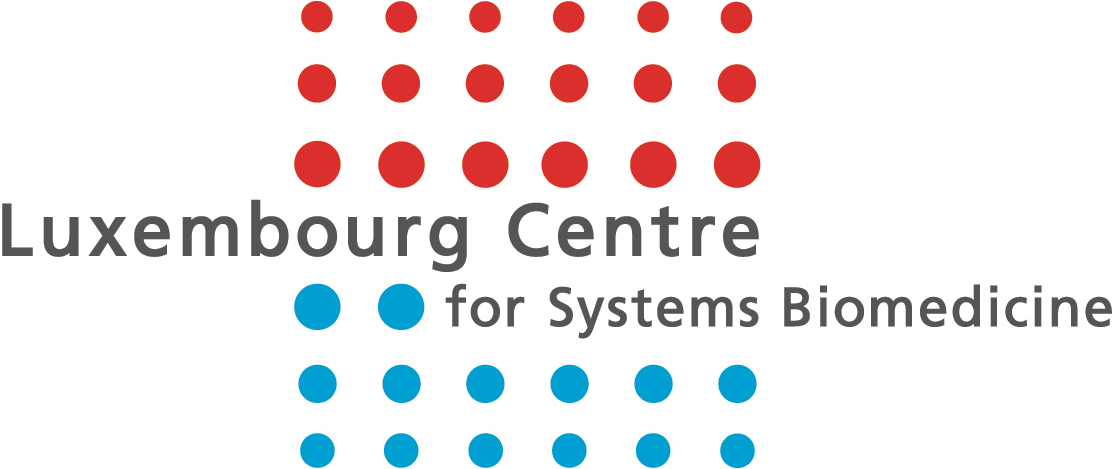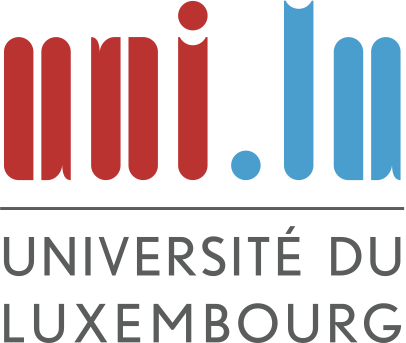Description
Knowledge-based translational medicine is a rapidly growing discipline in biomedical research and aims to expedite the discovery of new diagnostic tools and treatments by using a multi-disciplinary, highly collaborative, “bench-to-bedside” approach. Large amounts of multi-omics, imaging (medical and molecular) and clinical data can now be captured for given patient populations. In addition to the challenges of data curation and harmonisation, new computational methods are required to identify molecular signatures that suggest disease subtype. These signatures may be predictive of outcome or progression, and impact on disease management by suggesting personalised therapeutic strategies for patients. Such approaches will further the development of a new taxonomy of disease.
In the TransMed COSI meeting, we will explore the current status of computational biology approaches within the field of translational medicine.
Link to the ISMB ECCB 2017 website is: here
Please note:
-
Proceedings Submission Deadline: January 26, 2017
-
Non-Proceedings Submission Deadline: April 13, 2017
Topics of interest
Topics of interest include, but are not limited to:
* Clinical and molecular data storage and integration infrastructure, including: data warehousing for translational medicine, multi-‘omics and clinical data integration, data visualization in translational medicine
* Curation and harmonization of clinical, ‘omics and imaging data, including: standards and ontologies in translational medicine, biomedical text mining and semantic representation
* Data analytics for patient stratification, biomarker and target discovery, including: disease subtype discovery, Electronic Health Records integration, translational imaging, multi-scale modelling, high performance and cloud computing in translational medicine, mathematical modelling for disease processes, pathways and networks
* Computational approaches for target selection and drug discovery, including: druggability assessment and target selection, polypharmacology, drug reuse, chemical library design, virtual screening technologies, drug discovery enabler pipelines and databases, chemical tool analysis
* ADME/PK and Tox models, including: databases and modeling approaches for ADME and PK, machine learning approaches to predicting toxicity, modeling of pharmacokinetics to man and model organism utility models
* Translational Medicine Informatics Applications/Case Studies, including: Next generation sequencing annotation and biomedicine applications, clinical data integration and application
Keynote speakers
Dr. Anguraj Sadanandam, The Institute of Cancer Research, UK
Biography: Anguraj Sadanandam completed his interdisciplinary (wet-lab and computational biology) Ph.D. from University of Nebraska Medical Center, Omaha, Nebraska, and continued postdoc under Professors Joe Gray and Douglas Hanahan (USA and Switzerland). Briefly worked at Swiss Institute of Bioinformatics. Currently leading Systems and Precision Medicine team at the Institute of Cancer Research (ICR). His team uses cutting-edge wet-lab and computational biology to focus on inter- and intra-tumoral heterogeneity at the genetic, epigenetic, molecular and metabolic levels and to understand how they contribute to variations in metastatic potential, prognosis and therapeutic responses in patients.
Prof. Tim Hubbard, King’s College London, UK
Biography: Tim Hubbard is Head of the Department of Medical & Molecular Genetics at King's College London and Director of Bioinformatics for King's Health Partners. He is also Head of Genome Analysis at Genomics England, the company set up by the Department of Health to execute the 100,000 genomes project, which aims to mainstream the use of whole genome sequence analysis for treatment in the UK National Health Service (NHS). Until 2013 he was Head of Informatics at the Wellcome Trust Sanger Institute where he was one of the organisers of the sequencing of the human genome. In 1999 he co-founded the Ensembl project to analysis, organise and provide access to the human genome and from 2007 led the GENCODE project to annotate the structure of all human genes.
Prof. Barend Mons, Leiden University Medical Center, NL
Biography: Barend Mons is a molecular biologist by training (PhD Leiden University 1986). He spent over 15 years in malaria research in close collaboration with endemic countries. After that he gained experience in computer-assisted knowledge discovery, which is still his research focus. He spent time with the European Commission as a Seconded National Expert with the INCO-DC pogramme (1993-1996) and with the Netherlands Organisation for Scientific Research (NWO 1966-1999). Barend also co-founded several spin off companies. in 2000 he founded the biosemantics group in Rotterdam and later also in Leiden. Currently , Barend is Professor in Biosemantics at the Human Genetics department of Leiden University Medical Center, is Head of Node for ELIXIR-NL at the Dutch Techcentre for Life Sciences, Integrator Life Sciences at the Netherlands eScience Center, and board member of the Leiden Centre of Data Science. In 2014, Barend initiated the FAIR data initiative and in 2015, he was appointed Chair of the European Commission's High Level Expert Group for the "European Open Science Cloud". Presently, Barend is co-leading the GO FAIR initiative.
Agenda
| Start time | End time | Type | Topic | Speaker |
|---|---|---|---|---|
| 8:30 | 8:40 | Intro & Welcome | Reinhard Schneider | |
| 8:40 | 9:15 | Keynote | Metavariable based genome-phenome integrative analysis to facilitate personalized cancer medicine | Anguraj Sadanandam |
| 9:15 | 9:30 | Proceedings | Molecular signatures that can be transferred across different omics platforms | Michael Altenbuchinger |
| 9:30 | 10:00 | Coffee_Break |
||
| 10:00 | 12:30 | Chair | Mansoor Saqi | |
| 10:00 | 10:35 | Keynote | The 100,000 genomes project | Tim Hubbard |
| 10:35 | 10:50 | Proceedings | Association testing of bisulfite sequencing methylation data via a Laplace approximation | Omer Weissbrod |
| 10:50 | 11:05 | Proceedings | Identification of Associations between Genotypes and Longitudinal Phenotypes via Temporally-constrained Group Sparse Canonical Correlation Analysis | Xiaoke Hao |
| 11:05 | 11:20 | Proceedings | Predicting phenotypes from microarrays using amplified, initially marginal, eigenvector regression | Lei Ding |
| 11:20 | 11:35 | Proceedings | Systematic identification of feature combinations for predicting drug response with Bayesian multi-view multi-task linear regression | Muhammad Ammad-Ud-Din |
| 11:35 | 12:30 | Chair | Wei Gu | |
| 11:35 | 11:45 | Flashtalk | Epigenomic profiling of glioblastoma through treatment and progression | Johanna Klughammer |
| 11:45 | 12:00 | Talk | Predicting cancer sequential treatments and drug repurposing with SATIE | Héctor Tejero |
| 12:00 | 12:15 | Talk | canSAR: an integrated knowledgebase for cancer research and drug discovery | Elizabeth Coker |
| 12:15 | 12:30 | Talk | Integrative analysis of personalized, multidimensional datasets of glioblastoma patients | Nikolaus Fortelny |
| 12:30 | 14:00 | Lunch + Posters | All | |
| 2:00 | 4:30 | Chair | Venkata Satagopam | |
| 2:00 | 2:35 | Keynote | The Internet of FAIR data and Services | Barend Mons |
| 2:35 | 2:50 | Talk | Using Multi-Scale Genetic, Protein, Neuroimaging and Clinical Data for Predicting Alzheimer’s Disease and Reconstruction of Relevant Biological Mechanisms | Holger Fröhlich |
| 2:50 | 3:05 | Talk | Understanding human disease relationships through integrated molecular and clinical analysis | Winston Haynes |
| 3:05 | 3:20 | Talk | Integrating personalized gene expression profiles into predictive disease-associated gene pools | Emre Guney |
| 3:20 | 3:35 | Talk | Classification of Paediatric Inflammatory Bowel Disease using Machine Learning | Enrico Mossotto |
| 3:35 | 3:50 | Talk | Pseudotemporal disease trajectories from cross-sectional data | Kieran Campbell |
| 3:50 | 4:00 | Flashtalk | Integrating genomics and transcriptomics to dissect the pathogenic mechanism of X-Linked Dystonia-Parkinsonism | Rachita Yadav |
| 4:00 | 4:10 | Flashtalk | Prediction of HIV-1 sensitivity to broadly neutralizing antibodies shows a trend towards resistance over time | Anna Hake |
| 4:10 | 4:20 | Flashtalk | Understanding human knockouts | Suganthi Balasubramanian |
| 4:20 | 4:30 | Concluding Remarks | Bissan Al-Lazikani |
Abstract submission
Authors are invited to submit abstracts (1 page) for presentations and posters by April 13, 2017. Acceptance notification will be sent out by May 10, 2017.
Please use the EasyChair submission system.
Key dates
-
Call for one-page Abstract Opens: January 3, 2017
-
Submission Deadline: April 13, 2017
-
Final Acceptance Notification: May 10, 2017
-
Final program available: Extended to June 10, 2017
-
TransMed 2017 COSI: July 25, 2017
For Proceedings Submission, please follow this guideline.
- Please note: Proceedings Submission Deadline: January 26, 2017’’’
Venue
The TransMed COSI meeting will take place on July 25th, 2017, during the ISMB 2017, Prague (Convention Center), Czech Republic.
Sponsorship
We would like to thank our sponsors:
for their kind support:
Registration
Please follow the registration page on the ISMB website: TransMed COSI Registration.
Organizing committee
Venkata Satagopam, Luxembourg Centre For Systems Biomedicine (LCSB), University of Luxembourg, Luxembourg
Bissan Al-Lazikani, The Institute of Cancer Research, London, UK
Reinhard Schneider, Luxembourg Centre For Systems Biomedicine (LCSB), University of Luxembourg, Luxembourg
Mansoor Saqi, European Institute for Systems Biology and Medicine, Lyon, France
Wei Gu, Luxembourg Centre For Systems Biomedicine (LCSB), University of Luxembourg, Luxembourg
Irina Balaur, European Institute for Systems Biology and Medicine, Lyon, France
Programme committee (alphabetical order)
Sanne Abeln, Vrije Universiteit Amsterdam
Mauro Antonio Alves Castro, Federal University of Paraná (UFPR)
Francisco Azuaje, Luxembourg Institute of Health (LIH)
Peter Banda, University of Luxembourg
Adriano Barbosa-Silva, University of Luxembourg
Nyasha Chambwe, Institute for Systems Biology
Laura Elo, University of Turku
Holger Fröhlich, UCB Biosciences GmbH
Olivier Gevaert, Stanford University
Anna Goldenberg, SickKids Foundation
Samiul Hasan, GlaxoSmithKline
Carl Herrmann, University Heidelberg & DKFZ Heidelberg
Francesco Iorio, EMBL | EBI
Roland Krause, University of Luxembourg
Seunghak Lee, Human Longevity, Inc
Yu-Chen Lo, Stanford University
Gang Luo, University of Washington
Gino Marchetti, CNRS / IN2P3
Patrick May, University of Luxembourg
Renee de Menezes, VU University Medical Center
Sabine Peres, LRI Paris-Sud 11 University
Juliane Perner, Cancer Research UK Cambridge Institute
Thang Pham, VU University Medical Center
Kirsten Roomp, University of Luxembourg
Anguraj Sadanandam, Institute of Cancer Research (ICR)
Katrin Sangkuhl, Stanford University
Joachim Selbig, University of Potsdam
Fabrizio Smeraldi, Queen Mary University of London
Jaclyn Taroni, University of Pennsylvania Perelman School of Medicine
Erdogan Taskesen, Vrije Universiteit Amsterdam
Allan Tucker, Brunel University
Fabio Vandin, University of Padova
Joachim Weischenfeldt, Biotech Research & Innovation Centre (BRIC)
Junming Yin, University of Arizona
Sascha Zickenrott, University of Luxembourg
Contact us
If you have any questions, please do not hesitate to contact us: transmed-coord@googlegroups.com.
Follow us
Google Groups: TransMed2017 Google Group
Twitter: #TransMed2017
Linkedin: Translational Medicine Informatics & Applications Group
Acknowledgement
The TransMed logo was designed by Alexandre Pellet, www.alexandrepellet.com.
For more information on the TransMed 2021 meeting please go here.


